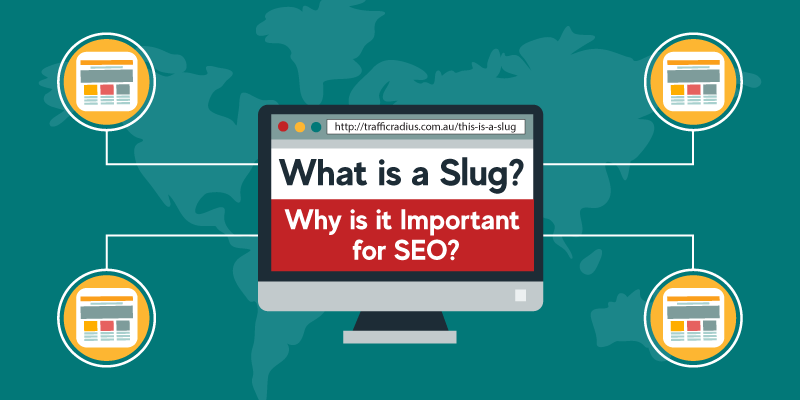I hope you enjoy reading this blog post.
If you want to get more traffic, Contact Us

Click Here - Free 30-Minute Strategy Session
Be quick! FREE spots are almost gone for this Month. Free Quote

One term that website owners, marketers and SEO beginners come across frequently is slug. What is a slug?
SEO slugs or URL slugs are nothing but the URL-friendly version of the permalinks.

Click Here – Free 30-Minute Strategy Session
Be quick! FREE spots are almost gone for this Month
For those of you thinking what is URL – URL is the address of a web page.
Now, coming back to slug – did you know that it is essential to optimize the slug for SEO?
Yes, it is important.
In this article, we have made an attempt to explain what is a slug, what is a slug in WordPress, what is an SEO slug, what is a page slug and what makes it important in SEO?

When you Google the phrase “what is a slug”, the definition that you come across will be something similar to “slug is the part of the URL that identifies a specific page on a website in a form, which can be easily read by the users”.
Well, simply put, it is the nice part of your URL that explains what the content of the page is all about.
In WordPress, slug is nothing but a part of the URL that is editable, which can be particularly modified while writing a new post.
So, WordPress slug/slug WordPress, is mainly about WordPress get page slug.
However, at this point it is important to note that slugs work well only when they are coupled with the correct permalink settings.

Although several variables are already added to your URL structure, we are still focusing on the specific editable part of the URL of the page.

At time, there could be some additional values at the end of the URL.
Often, in such cases, the extra variable will be used son that the slugs can remain unchanged, even when the URL gets altered.
First thing that a search engine reads is the slug. Now this should already tell you how important it is.
It is also crucial to be mindful about your slugs and keep them consistent with the post title as well as the topic.
This is because URLs have a major impact on your search engine rankings and are also important to the keyword presence in your articles.
Similar to the title tag, on-site SEO optimization also hugely depends on the slugs.
The main reason for this is that search users also take a look at the slugs even in the snippets of the search results.
So, when you think of slugs, it is not purely about the SEO of your website.
It is also about how tactfully you will be able to make your search users click on your URL. So, it is important to optimize your slugs.
Having said that, let us now move on and look at optimizing slugs.
There are multiple factors that you should consider to construct the apt slug for web page or blog post.
Following are some of the major elements that you should consider:
Filtering out unnecessary words is crucial.
Words like “a”, “and” & “the” should be removed and also all sorts of stop words should be filtered out.
Apart from filtering out stop words, it is important to filter out all the words that you do not just require.
However, the slug should still read fine and make sense.
Although the search results display the URL of your web page, at times it might get replaced by the breadcrumbs.
So, when this happens Google will highlight all the matching phrases from the given search query.
While trying to optimize the slugs for SEO, it is important to make sure that the keywords are present in it.
Next, it is equally important to get rid of the stop words as well.
The main reason behind this is that, search engines will anyway do away with the stop words.
So, by cleaning your slug, you will be doing a favor for the search engines.
While modifying your slug to make it better, captivating and packed with keyword version of your URL is not simple, there is no rocket science involved in this either.
Let us consider WordPress users (because we assume that most of the readers will be WordPress users), here, all that you have to do is to just click on the button “edit”, which is right under the text are.
Now, isn’t that simple.
If you are not a WordPress user and have your static website, it is much easier.
You should just change the filename of the web page
One last thing to remember is to be mindful of the slugs.
After all, it can be the one and only reason that your competitor will be ranking higher than you.
Hope this answers your SEO slug definition or URL slug meaning or Yoast SEO slug.

LEAVE A REPLY